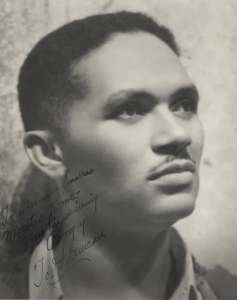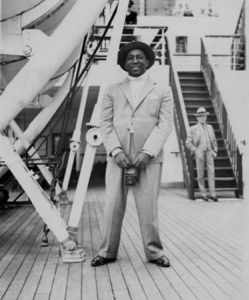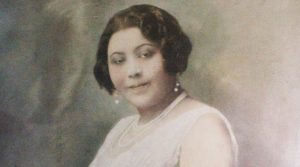Podcast: Play in new window | Download (Duration: 1:31:21 — 85.5MB) | Embed
Subscribe: Spotify | TuneIn | RSS | More
Today I present the male lead creator of Gershwin’s towering masterpiece, Porgy and Bess, the magnificent Todd Duncan (12 February 1903 – 28 February 1998), whose other creations included work by Kurt Weill, Cole Porter, and a pop standard that might surprise you. Duncan also made extraordinarily important contributions as a teacher, a recitalist, and as a civil rights figure. All of these aspects of his life are explored in this episode, which features recordings from all corners of his artistic and musical life, including two live broadcasts of excerpts from Porgy and a number of rare recordings of art song and a treasurable (if craggily-recorded) album of spirituals. Here was a man who pursued his career and his life with a strong sense of his own self-worth, but also kindness, integrity, and humility.
Countermelody is a podcast devoted to the glory and the power of the human voice raised in song. Singer and vocal aficionado Daniel Gundlach explores great singers of the past and present focusing in particular on those who are less well-remembered today than they should be. Daniel’s lifetime in music as a professional countertenor, pianist, vocal coach, voice teacher, and journalist yields an exciting array of anecdotes, impressions, and “inside stories.” At Countermelody’s core is the celebration of great singers of all stripes, their instruments, and the connection they make to the words they sing. By clicking on the following link (https://linktr.ee/CountermelodyPodcast) you can find the dedicated Countermelody website which contains additional content including artist photos and episode setlists. The link will also take you to Countermelody’s Patreon page, where you can pledge your monthly or yearly support at whatever level you can afford.






